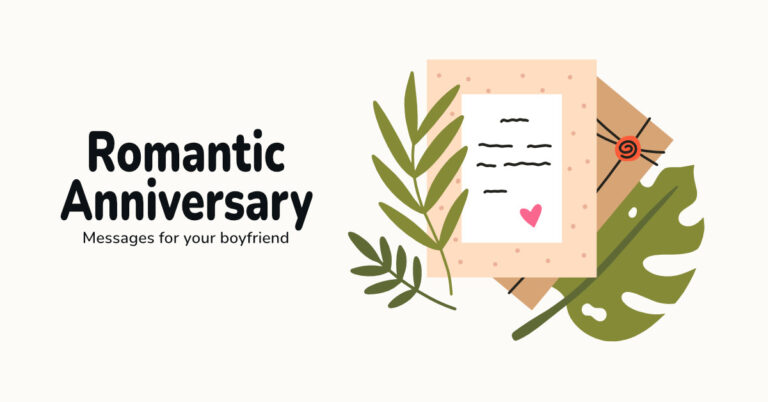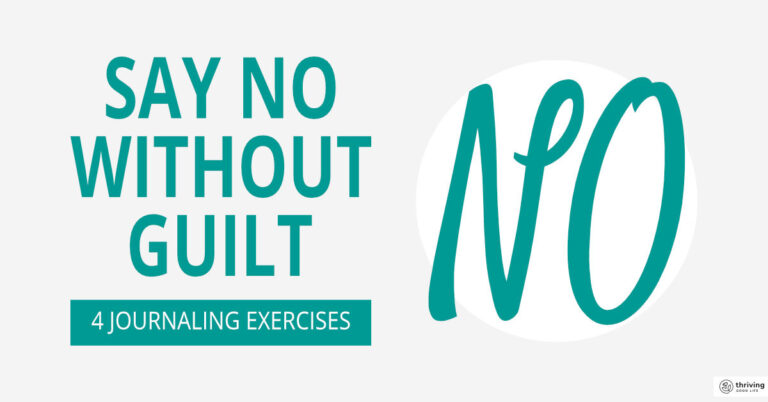When I first started journaling, I felt lost in a sea of opinions that left me questioning whether I was doing it the “right way”.
But after a decade of journal writing, here’s what I know to be true:
There’s no one “right way” – the best way is whatever gets your pen flowing onto the page.
If you’re struggling to do that, or you’re finding it difficult to commit to quite possibly one of the best self-care practices out there – I’ve got 21 practical solutions for you.
These journaling tips for beginners are based on research and insights gained from my personal experience. Everything from strategies to unstick writer’s block, and conquer perfectionism, to creating a ritual that makes journaling feel like a hot cup of tea on a rainy day.
Let’s begin.
1. Take baby steps
You’re staring at the first blank page of your freshly bought journal and it’s intimidating. Because you think you need to fill it with something worthy, deep, and meaningful. You really don’t.
You’re allowed to start small.
Think of the most minor thing you can write.
A doodle, a single word, a short sentence. One fleeting thought, a feeling in the moment, something you want to get off your chest, something about your day.
Now jot that down.
Congratulations. That’s your first journal entry completed.
2. Build momentum
In chemistry, there’s this concept called activation energy 1, where an initial push is needed to get a chemical reaction started. You can see this play out with journaling.
At times, journaling might feel like moving a colossal ball up a steep hill. You’re tired, and you don’t want to succumb to the task of writing, so the motivation to grab your journal isn’t there.
But pushing through that initial resistance creates momentum. Once you scribble down your first word or sentence, like a ball rolling downhill, the rest follows easily.
On those days when I’m not in the journaling mood, I pick up my journal anyway. I tell myself I’ll write for 5 minutes. 15 minutes later, I’m still writing.
This is my magical juice for getting things done when I’m short on enthusiasm.
Even if you don’t feel like it, give yourself a little nudge. Start journaling for a few minutes. You might be surprised by how much you end up writing.
3. Why do you want to journal?
What is it that’s steering you towards journaling? And why do you want to journal now, as opposed to say, two years ago?
I know, ‘finding your why’ seems like something you’d see plastered on a motivational poster. One that features the head of a fierce lion.
But, we’re more likely to develop a passion for something, if we understand why we’re doing it.
And knowing our ‘why’ gives us a sense of purpose makes us feel good 2. It becomes so much easier to decide where to spend our time and energy.
The reason why I journal is because I want to improve the relationship I have with myself and others. To become more self-aware, compassionate, emotionally intelligent – all the things.
I’d rather spend an afternoon journaling than watching TV. Why? Because, the time I spend journaling is contributing to my personal growth goals. And that makes me feel good about myself.
Whereas the time I spend watching TV often results in binge-watching, channel-surfing, lethargy. And mental stagnation.
So figure out why you want to start a journal.
Is it to capture memories you can pass onto younger generations? Or to process unhealed wounds and a painful past? Or to grow into the best possible version of yourself? Whatever that reason is for you, write it down.
And when the struggle to pick up your journal takes hold, refer to your reason why. It’ll help you to refocus your motivation and get back to what sparked your interest in journaling in the first place.
4. Write like no one is watching (because no one is)
This is hands down the best way to silence your inner critic.
In my early journaling days I would edit my writing. My inner critic would judge me harshly. Telling me my thoughts were too weird or petty to write down, and if I didn’t have anything worth journaling about, I should just stop.
Fortunately, I didn’t stop.
I dove head first into stream-of-consciousness journaling, and found myself writing about things I never would have if I filtered my thoughts first. It was liberating.
So don’t edit or inhibit yourself. Be open, honest, and vulnerable in your journal entries. Give your uncensored thoughts room to spill onto the page, and write whatever pops into your head.
Even the random, nonsensical stuff. Just write.
Even if you end up writing a whole page on how much you love eating bread.
You’ll find yourself exploring your thoughts and ideas freely, making connections and discoveries that you might not have made otherwise.
5. Embrace messiness – it’ll set you free
Just as your inner critic judges your thoughts, you may find yourself criticising your spelling, grammar, and handwriting too.
Ever have an encounter with a grammar snob online? Someone posts something beautiful and personal, then along comes the snob to point out a typo. Everyone else understands the message as it is. But the snob feels obligated to kill the moment.
Perfect prose isn’t the goal here. Messiness gives your journal guts, soul, and character. Give yourself permission to make mistakes, cross things out, use silly made-up words.
My pages have half-finished thoughts, diagonal rants, and incoherent scribbles.
And my recovering perfectionist is learning to deal with the mess.
If you find yourself getting too caught up in being perfect, here’s a mantra you can steal:
“My journal is a reflection of me, flaws and all, and I’m here for it.”
6. Embrace the 5-minute rule
This is similar to tip number 2, but now you’re setting a time constraint for your journaling session.
This removes the pressure and lets you fit in some journaling even when your schedule is packed.
Tell yourself you’ll write for just five minutes. Set a timer.
When the buzzer goes off, put your pen down.
Rather than seeing a lack of time as a roadblock, be intentional with the limited minutes you have. Even a short burst of writing is better than nothing.
7. Set intentions with discipline
Motivation will only get you so far.
To journal consistently, you need a big dose of self-discipline.
I know, the D-word is disliked by many because we associate discipline with punishment. But really, when the motivation fades discipline is the thing that keeps us on track. If we allow it.
By setting an intention to journal on a regular basis, you’re making a declaration that you will commit to journaling. Even when you’re strapped for time, or when it feels like too much of an effort.
You don’t need strict or rigid goals. Just the quiet knowledge that this is what you’re going to do, and then actively follow through with it.
8. Minimise distractions
It’s a pain when you sit down to journal, only to get interrupted just as you’re getting to the juicy bits.
I know finding quiet time can be tough, especially with a busy family life. But don’t let distractions sabotage your journaling habit.
As much as you can, pay attention to things that threaten to distract you, like your phone or the urge to multitask. Set yourself up for success by turning off notifications, putting your phone in another room, and focusing on one task at a time.
If you live with a partner or family, try to figure out when your household’s quieter times are. Communicate with your people – explain you just need short bursts of uninterrupted writing time. Even if it’s 5 or 10 minutes, ask them not to disturb you during your scheduled journaling time.
Treat this time as sacred.
9. Safeguard your journal
Tell people that you keep a journal, and they’ll be curious about what’s inside it.
If you trust the people you share space with not to snoop, great. You still might want to have a conversation about how important privacy is to you.
If you’re unfortunate enough to live with people who are prone to snooping, figure out a way to protect your journal from their prying eyes.
That might look like buying a locking document bag or fireproof safebox and storing it in there. Or going for a digital journaling app with suitable encryption.
When you feel comfortable that the contents of your journal are safe, you’re more likely to write freely. Which means no need to censor or stress over what you wrote.
10. Make it accessible (to you)
When you see your journal frequently, you have a tendency to want to pick it up.
So choose a regular spot to keep your journal close by, and accessible.
This could be on your bedside table. It’ll remind you to write first thing in the morning or last thing at night. Or maybe your desk if you spend a lot of time there.
My journal has a permanent spot in my bedroom. When I wake up, it’s right there. Waiting for me to pour my thoughts into it.
Of course, as I mentioned in my earlier tip, if privacy is a concern you might want to take extra steps to conceal your journal.
11. Make time and stay consistent
Finding time to journal feels impossible some days. I get it.
The thing is, we prioritise what we want to spend time on.
Revisit your reasons for wanting to start. How important is it for you to journal?
If creating a safe space to nurture your inner life matters to you – whether it’s sharing your innermost thoughts, capturing memories, or working through personal issues – you’ll find a way to make journaling a reality.
Only you know where those pockets of time are in your waking hours.
5 minutes here, 10 minutes there each day or week. That’s all it takes.
And it doesn’t need to be at the exact same time. Flexibility in your routine will help make journaling sustainable long-term, while rigidity is going to turn you off.
One thing you might consider doing is starting a time log, where you track all your activity for a week. This weekly tracking spreadsheet will even give you a visual breakdown so you can see where you’re spending your time.
12. Embrace your identity as a journaler
I call myself a journaler. It’s more than a hobby, it’s part of my identity as someone who values personal growth. When I slack on writing, it feels like I’m betraying who I am, and I have this urge to get back on track.
Now if you’re just starting out, you probably don’t feel like you’ve earned the title of journaler, just yet.
But if you see your future self as the person you want to become, you’re more likely to take up that mantle by doing things journalers would do, like write and reflect. Actions that will be of benefit to you in the future. 3
Adopting the identity of a journaler is a subtle mindset shift that will help you feel more connected to your practice, especially during times when you don’t feel like journaling.
13. Follow your curiosity
By choosing to journal, you’ve already demonstrated your innate curiosity and desire to get to know yourself better. Now take that curiosity further by exploring all and everything that interests you.
Go down rabbit holes, slide into tangents. Anything you feel drawn to understand more deeply. This freedom is the beauty of journaling – it’s your space to follow whatever calls you, without judgment.
You’ll soon find insights will flow without you having to overthink things.
14. But don’t get stuck asking “Why”
While exploring your curiosities, it’s possible to get stuck on asking “why” questions. But dwelling on why things happen keeps you in a loop of endless rumination. Which is unproductive.
And quite frankly, torturous to our mental wellbeing 4.
Instead, ask more “what” questions like these:
- What can I do to improve my situation right now?
- What resources or support do I need?
- What lessons or insights have I learned from this situation?
- What can I do differently the next time I face a similar situation?
These sorts of questions free you from the shackles of incessant pondering, by directing your focus on finding solutions and ways to move forward.
15. Start with a journal prompt
There’s nothing like a good prompt question to dig yourself out of the hole known as writer’s block.
Some days I sit down ready to pour my thoughts onto the page, only to find I’ve got zilch to pour. Just a brain full of chirping crickets. It’s times like this when I open up my vault of journaling prompts.
Prompts can range from questions to quotes, to statements to song lyrics. They give you structure and inspiration, guiding you to explore ideas you wouldn’t otherwise explore.
I research and write journal prompts based on articles and books I’ve read, or videos I’ve watched. Here are a few of my prompt lists. Use these when you feel stuck in a writing rut:
16. Pick the right tools
Nothing kills my journaling buzz quicker than trying to write with a scratchy pen. Uneven ink flow, the scraping of paper, and scrawny letters. Just… no.
You’d be surprised at how much easier journaling is with the right tools. For me, it’s a simple ballpoint pen that doesn’t smudge, and a sturdy lined notebook.
If you prefer digital journaling, find a phone or iPad app that feels comfortable to write in. You might have to try out a few different ones until you hit gold.
Don’t underestimate the power of picking the right tools. They’ll make or break your journaling habit.
17. Play with different formats and techniques
There are many different ways to journal. Don’t be discouraged if a technique doesn’t work for you.
I dabbled with morning pages for a while. But even as a morning journaler, I found the directive of writing three pages every single morning way too rigid for me. My writing felt forced. Like a dreaded daily chore. And so I moved on to other methods.
If long-form writing feels daunting, try bullet points or lists instead.
Try mapping out your thoughts visually with doodles, sketches, or collages.
You can write letters to yourself, or to others -the kind of letters you don’t need to send.
You can write a one-line-a-day journal, or even create vision boards.
Keep experimenting until you find formats and techniques that inspire you to express yourself.
18. Don’t force your writing
If you find yourself staring at a blank page with nothing coming to mind, breathe.
I’ve been there. Many times. Racking my brain trying to manufacture some deep insight or meaningful message that will explain away the pain or confusion of a situation. But it’s just not surfacing. And that’s madly frustrating.
But instead of allowing my mood to ruin my journaling time, I write about the frustration. About my struggle to articulate my thoughts. I try to figure out where that blankness is coming from: Am I tired? Stressed? Overwhelmed?
I’ll write something along the lines of: “My mind feels blank right now. I want to journal but the words aren’t flowing…”
It’s okay if your entry is simply you documenting your difficulty with journaling.
All thoughts and feelings are worth capturing, not just profound revelations.
Be patient with yourself. The words will come when you stop trying to force them.
19. Drop your expectations
Journaling is a gradual process, not a quick fix. It may take weeks or months of regular writing before you gain any real clarity or insight.
And even then, you’ll have days when you feel like you’re taking two steps back. You’ll experience journaling highs, and lows.
Some journaling sessions will feel like you’re just venting into the void, leaving you feeling a bit crappy. Other sessions will feel like magical moments where you tap into unexplained wisdom and depth that lights you up.
Since you never know what journaling will uncover, it’s best to keep your expectations low
That way, you won’t be disappointed when you don’t experience a major or immediate shift in your perspective. And trust me, when those transformative moments do happen, you’ll feel them much more deeply because you weren’t expecting them.
20. Write in second person
Sometimes when I journal, I’ll address myself in the second person. I use ‘you’ as if I’m having a conversation with a close friend.
This little trick creates a helpful sense of distance and objectivity.
When you pretend you’re giving advice or guidance to a friend, it helps you detach yourself from the situation you’re writing about. And it’s amazing how comforting and insightful this is.
Engaging in this conversation with your supportive and empathetic self, using the second person, allows you to let go of any biases, fears, or insecurities that might affect your writing. Helping you become more compassionate, and open. Which of course leads the way to deeper insights, and a clearer perspective on your thoughts and experiences.
Next time you find yourself needing to overcome personal biases or view things from a different angle, give this approach a shot.
21. Create a journaling ritual
While having a regular journaling routine is the goal, creating a journaling ritual takes it up a notch. It creates a sense of connection, meaning, and continuity.
A ritual can be any set of actions or steps that you perform before, during, or after your journaling session to make experience feel more special. Like sacred time, just for you.
Do small things before writing to centre yourself. You can take a bubble bath, light a candle, listen to chill music, or even take a walk in nature.
During your session, you could brew a fresh cup of tea or diffuse an essential oil blend and enjoy the aroma as you write
And when you finish journaling, play an upbeat song and do a quick happy dance or just stretch. You can even take a moment to re-read previous journal entries, reflecting on how much you’ve grown.
I’m an early riser, and I love waking up to the song of the birds twittering outside my window. Journaling while listening to birdsong is my fun ritualistic thing to do in the morning.
That, plus some form of exercise before I start my day -time allowing.
So, don’t just settle for a routine. Create a ritual. Aim for something that enriches your entire journaling experience.
—
These journaling tips for beginners are meant as suggestions to help your practice. Some may strike a chord with you, others may not. That’s fine. What’s more important is finding a way to journal that feels genuine and meaningful for you.
And if any of these tips helped you out of a journaling jam, leave a comment below.
Footnotes
- Clear, J. (2015, August 7). Activation energy and the chemistry of building better habits. James Clear. https://jamesclear.com/chemistry-habits
- The Bronfenbrenner Center for Translational Research. (2019, June 24). “Knowing your why” is good for you | Psychology Today United Kingdom. Www.psychologytoday.com. Retrieved August 29, 2023, from https://www.psychologytoday.com/gb/blog/evidence-based-living/201906/knowing-your-why-is-good-you
- Hershfield H. E. (2011). Future self-continuity: how conceptions of the future self transform intertemporal choice. Annals of the New York Academy of Sciences, 1235, 30–43. https://doi.org/10.1111/j.1749-6632.2011.06201.x
- American Psychiatric Association. (2020, March 5). Rumination: A cycle of negative thinking. Psychiatry.org. https://www.psychiatry.org/news-room/apa-blogs/rumination-a-cycle-of-negative-thinking








